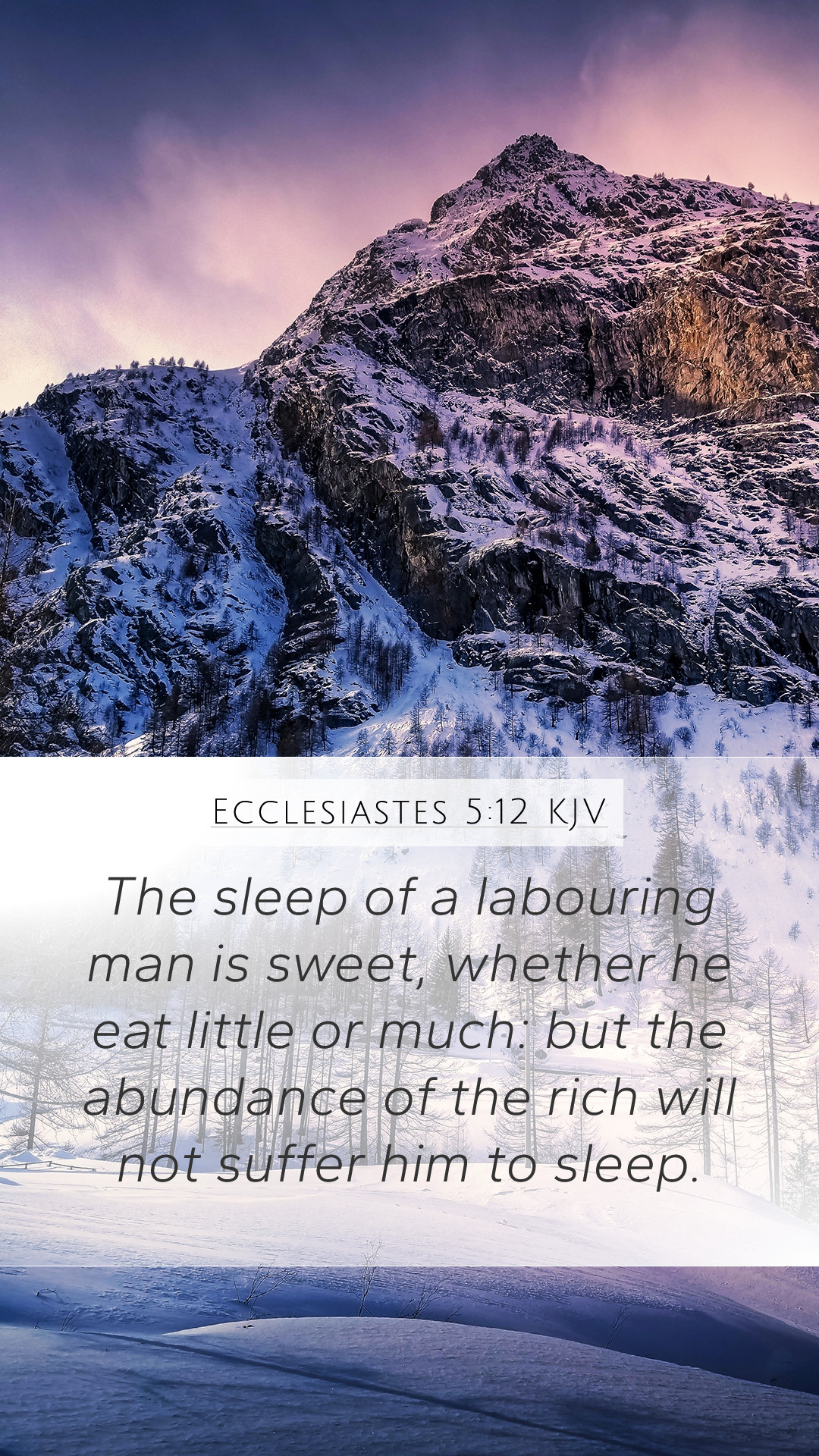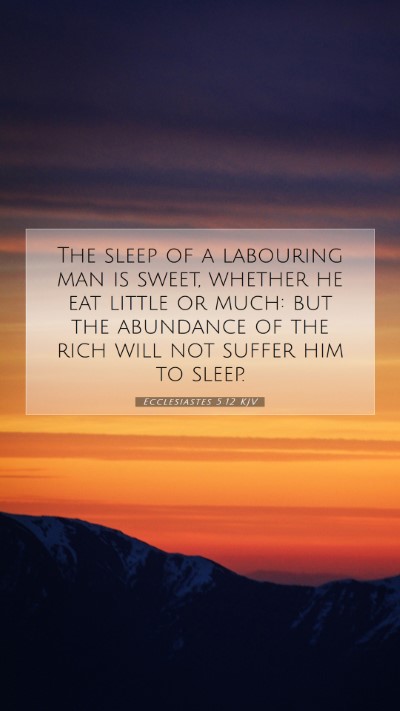Understanding Ecclesiastes 5:12
Ecclesiastes 5:12 states: "The sleep of a laboring man is sweet, whether he eat little or much: but the abundance of the rich will not suffer him to sleep." This verse provides profound insights into the contrasts between labor and wealth, bringing to light the deeper meanings behind the simple act of sleep.
Bible Verse Meanings
This verse emphasizes the peace of mind that comes from honest labor as opposed to the anxieties faced by those who are wealthy. Below, we explore the implications of this verse through various commentaries.
Bible Verse Interpretations
- Matthew Henry: Henry indicates that those who work earnestly are often rewarded with not only physical fatigue but also the profound satisfaction that leads to restful sleep. In contrast, the rich may find that their wealth brings a host of worries that deprive them of restful nights.
- Albert Barnes: Barnes elaborates on the psychological burden experienced by the affluent. Wealth may secure comforts but can also create a cycle of stress and fear, preventing true peace, which is often found in simple labor.
- Adam Clarke: Clarke identifies sleep as a gift from God, wherein a man's work and faithfulness enable him to rest peacefully, regardless of his material possessions. He highlights the spiritual dimension, suggesting that faith in God leads to a peaceful life, free from the weight of wealth.
Bible Verse Understanding
This verse encourages readers to consider what true wealth means. The satisfaction derived from meaningful work often surpasses the fleeting joy that material possessions provide, suggesting a need for balance in life.
Bible Verse Explanations
Ecclesiastes 5:12 serves as a timeless reminder of the value of labor and the simplicity of peace over the complexity of wealth. For believers, this verse prompts a deep reflection on priorities in life and the nature of true contentment.
Historical Context of Ecclesiastes
The Book of Ecclesiastes is traditionally attributed to King Solomon, who reflects on the futility of earthly pursuits compared to the everlasting nature of spiritual fulfillment. Reading this verse within its historical context sheds light on the greater theme of vanity found in wealth and greed.
Application of Ecclesiastes 5:12 to Daily Life
For those studying the Bible, this verse can inspire discussions in bible study groups. By examining one's own life, it encourages exploring how our work correlates with our happiness and sleep, driving home the idea that fulfillment may often lay in labor, rather than in the pursuit of riches.
Bible Study Insights
Engaging in online Bible study or utilizing various bible study tools can help unlock further interpretations of this verse. Here are some practical insights:
- Encourage self-reflection: Ask participants to reflect on their sources of fulfillment.
- Discussion on blessings of labor: Explore the spiritual and physical benefits of hard work.
- Contrast materialism with spiritual wellness: Analyze how chasing wealth affects mental health.
Additonal Bible Cross References
- Proverbs 10:22 - "The blessing of the Lord, it maketh rich, and he addeth no sorrow with it."
- Philippians 4:11-12 - "Not that I speak in respect of want: for I have learned, in whatsoever state I am, therewith to be content."
- Matthew 6:25 - "Therefore I say unto you, Take no thought for your life, what ye shall eat, or what ye shall drink..."
Conclusion
In summary, Ecclesiastes 5:12 serves as a sound reflection on life's true priorities. The contrast between the laboring man's contentment and the rich man's worries encourages a deeper application of Scripture in our lives. Understanding Scripture in this manner fosters a connection with Biblical teachings that can guide believers through modern challenges.


